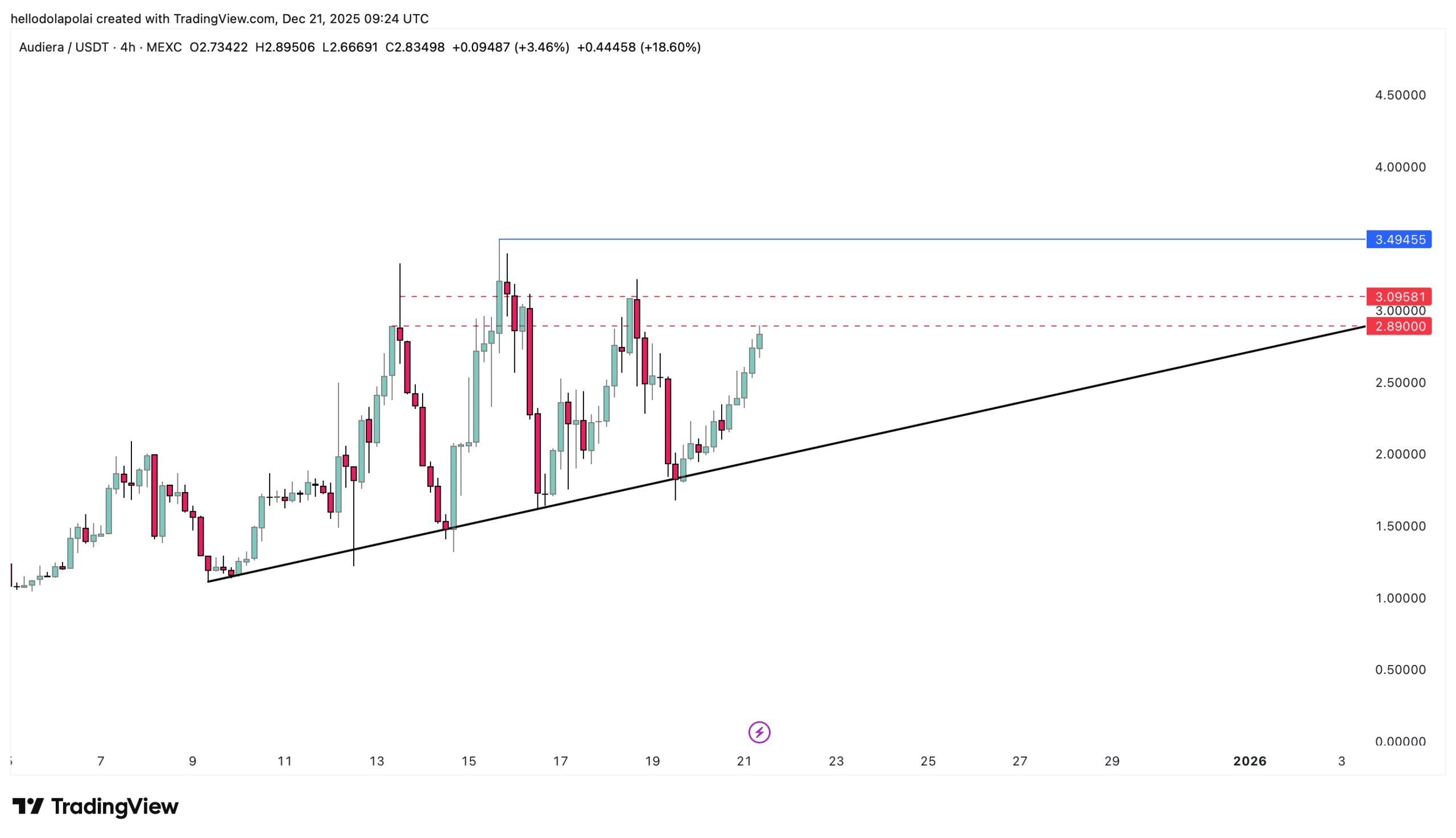Tron's Fee Cut Signals Bigger Push for Mass Adoption and DApp Growth
- Tron's community approved a 60% transaction fee cut via on-chain governance to boost adoption and DApp engagement. - The reduction targets small/medium users, addressing high costs compared to Ethereum and Solana while leveraging infrastructure upgrades. - Analysts link the move to broader blockchain trends, expecting increased user activity and microtransaction-focused projects on Tron. - The change aligns with Tron's long-term strategy to lower entry barriers and strengthen competitiveness in decentral
The Tron community has taken a significant step toward reducing transaction costs on the TRX network following a successful governance vote on August 29, 2025. The proposal, which received broad support from token holders, aims to lower transaction fees by approximately 60% to encourage greater on-chain activity and adoption. This decision reflects the Tron ecosystem’s ongoing efforts to enhance usability and scalability in response to growing user demand and competitive pressures from other blockchain platforms [1].
The vote was part of Tron’s regular on-chain governance process, where token holders can propose and approve changes to the network’s parameters. The proposal specifically targeted the adjustment of base transaction fees, which are currently set at a level critics argue discourages frequent use by small and medium-sized users. With the new parameters, the cost per transaction is expected to decrease significantly, making it more cost-effective for developers and users to interact with the Tron blockchain [2].
Industry observers have noted that this fee reduction aligns with broader trends in blockchain adoption, where user experience and cost efficiency are key drivers. By making transactions more affordable, the Tron network may see an uptick in daily active users and decentralized application (DApp) engagement. This could also attract new projects to the Tron ecosystem, especially those focused on microtransactions or high-frequency trading [3].
Several factors have contributed to the urgency of this reform. Over the past 12 months, the Tron network has seen a steady increase in transaction volume, but the average cost per transaction has remained relatively high compared to alternatives such as Ethereum and Solana . This has created a challenge for widespread adoption, particularly among retail users and small developers. The proposed changes are expected to make Tron more competitive in this regard [4].
Analysts also highlight that the fee adjustment is supported by recent upgrades to the Tron blockchain’s underlying infrastructure, including improvements in throughput and smart contract execution. These technical advancements have laid the groundwork for more affordable operations without compromising network security or performance. If implemented successfully, this could signal a broader trend of optimization and efficiency across the Tron platform [5].
The Tron Foundation has emphasized that this move is part of a long-term strategy to reduce barriers to entry and support the growth of the decentralized economy. While the exact implementation date for the fee reduction has yet to be announced, the approval of the proposal marks a pivotal moment in the network’s evolution. Token holders have shown a clear preference for a more accessible and user-friendly blockchain environment, and this governance decision reflects that consensus [6].
Source:

Disclaimer: The content of this article solely reflects the author's opinion and does not represent the platform in any capacity. This article is not intended to serve as a reference for making investment decisions.
You may also like
BEAT heats up, rallies 30%! A key level stands before Audiera’s ATH

Trending news
MoreBitget Daily Digest (Dec.22)|The U.S. House of Representatives Is Considering a Tax Safe Harbor for Stablecoins and Crypto Staking; Large Token Unlocks for H, XPL, SOON, and Others This Week; BTC RSI Near a 3-Year Low
Bitget US Stock Morning Brief | Fed Internal Divisions Widen; Trump Accelerates Space Militarization; Pharma Giants Accept Price Cuts for Tariff Relief (December 20, 2025)
